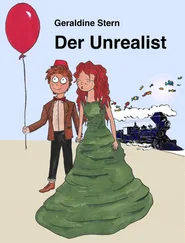“Mr. Harris did not stay here long after. He got a better offer and he took it. His ties had been to the young master. I think he really loved the boy, in his way. He certainly spent more time with him than Mr. Clement, who made it cruelly plain that his own son bored him. It was Mr. Harris who praised the boy when he mastered some aspect of farm work. I think you know that Mr. Clement never troubled to conceal his contempt for estate matters or those whose minds they occupied. You could not have known how it galled Mr. Harris, that morning of his return, when he came into the kitchen for refreshment and learned from Annie that you had been dining with Mr. Clement every day. He himself had never been invited to do so. Not once, in nine long years of service. So, I suppose you could say that Mr. Clement had no right to the man’s loyalty.
“In any case, the place has never been well run since the day he left. The replacement Mr. Clement hired was a swindler: he made off with a year’s profit. The next man was a brute—” She stopped for a moment, dealing with memories that were evidently so bitter she could not give them voice. ‘’Mr. Clement dismissed him after two of our best hands, Mose and Asa, ran off. Until that time the Clements had never had a runaway. By then, the place had a name for mismanagement, and the only person Mr. Clement could find to take it on was a man who spent all night drinking applejack and all day sleeping it off. That was the year Mr. Clement started selling people, to make ends meet. The speculator wanted to sell me: I overheard him say that a “yaller girl” like me would be worth more than any other three hands down in New Orleans. But Mr. Clement wouldn’t hear of it. He sold Justice and Prudence instead. The day the speculator took them, Annie went to the river. Mr. Clement always maintained that she slipped on the rocks, but it wasn’t so. She just walked out into the channel until the water closed over her head.” I felt a hard lump form suddenly in my throat. Grace stood, abruptly, and busied herself lighting the lamp against the gathering dark. Before the wick flared, I dashed the tears from my eyes with the back of my hand. “As soon as we got word that the Union army was camped across the river in Poolesville, half the remaining hands ran off. That left but three of us, and the other two left here a fortnight ago, during the battle for the island. “
“Grace,” I said, standing and taking a step toward her. “Why do you not go, too? The colonel told me he had offered you a place in a hospital in Georgetown…You could begin again there…”
In answer, she turned and looked down upon the sunken face of Mr. Clement. She bent over him to adjust his coverlid. He was snoring now; great shuddering sounds like a beast makes. “Just because he refrained from selling you to a bordello hardly means you owe him this kind of loyalty. He has a daughter, after all,” I went on. “Why cannot she have the care of him?”
She straightened, and looked at me, that direct gaze I remembered so clearly.
“He has two daughters, Mr. March.”
For a moment, I did not grasp her meaning. Then, as I did so, I put a hand out to the chair back to steady myself. It was so obvious, after all; her status in the household, the light tone of her skin, the resemblance she bore to Clement in her height and bearing. If I had not been such an innocent when I first came here, I must have seen it at once. She had told me that her mother had been sold at the time of Clement’s marriage. Surely it often went just so.
“But do not think I deceive myself. That is not the reason I was kept from the speculator.” She turned, in the dim lamplight, and I perceived that she was untying the lacings of her skirt.
“Grace,” I said, but she raised a hand to her lips to hush me.
“What is the point of modesty, between you and me?” she said, her silvery voice suddenly hoarse. “You have seen me this way before.” Her gaze was unflinching, even though her eyes brimmed. She pushed the fabric down below her right hip. The scars stood, puckered and pale, against the smooth sheen of the uninjured skin above them. Twenty years, and there it was: the evidence of the great crime I had witnessed. That I had caused to be committed.
“The fancy-girl merchants don’t pay for spoiled goods, Mr. March.”
I moved toward her and pulled the fabric up to cover the obscene marks. As I did so, my fingertip brushed against the place. The scar was hard as rind. I dropped to my knees then, overcome with grief and pity. “I am so sorry,” I whispered. But as I tried to rise, she laid her hands on my shoulders and gently, firmly held me. Then she drew my head against her.
There are many things I have told myself since, in exculpation for what I felt at that moment. I have tried to plead that fatigue had blurred my judgment; that amid so much death the body’s compulsion to reach for life, to the very act of generation, could not be gainsaid. This much is true: at that moment I believed that the most moral act I could perform would be the one that would unite us, completely. I wanted to give the lie to every claim of difference save the God-ordained one of Genesis: man and woman created he them.
But this, also, is true: I wanted her. The thought of her—arched, shuddering, abandoned—thrilled me to the core.
CHAPTER FOUR A Little Hell
Outside Harper’s Ferry, January 15, 1862
My dear,
This morning, at last, everything is quiet along our lines, and so I take the opportunity to thaw my frozen fingers with the exercise of writing these lines. By the time you receive this, whatever festivities the Christmas season may have afforded will be memories. I hope my girls were able, even in these hard times, to find some merriment and some meaning. Knowing you, my dearest, I do not doubt the latter; I imagine you all about some great Good Work. How I long for a letter from your own hand to tell me if I see you aright from this distance; I pray that some account of your doings will yet manage to reach me.
While I imagine Meg and Jo have long had recourse to Hannah’s hot morning “muffs” as they make their snowy way to their honorable employment, here the season’s first white cloak descended just this past night, and today’s sun rose in a clear sky to reveal the remarkable natural beauties of these ridges. They are etched out now in a black-and-white clarity such as our Amy could capture, were she here with pen to make a drawing of their loveliness.
The ridges, though picturesque, made for hard marching, and we had every kind of precipitation to contend with. The new recruits joined us before we marched, fresh-faced New England boys, and not a few of them fell out with exhaustion attempting to carry packs and equipment weighing more than fifty pounds. Despite the hardships, the newcomers are in good spirits and spoiling for a fight (simply because they have not yet had one), and that in itself cheers the veterans.
I find it suits me, this job of chaplain. I am, indeed, a “chapel man,” who carries within himself all that’s needed for worship. At last, it is possible to have a part in faith without carved pulpit or Gothic arch, without lace altar cloth and without robes, save my suit of unornamented black.
It is true that some of the men of strict denomination are perplexed by me, and I in my turn by them. I will share with you one tale which has, I think, an amusing ending. A private came daily to my tent over the past week, falling to his knees and crying out upon the heavens over his sins and his corruptions, begging all the saints to intercede for him that he not die so stained and be thrown into the Everlasting Fire. As a rule I would not presume to question a man’s beliefs, but this boy seemed so distraught that I began to lead his thought a little, sharing with him my conviction that since there were neither saints, nor a literal hell, he need not torment himself so over past failures, but simply try to do better in the future. At which point, he got up off his knees, swore, and pulled on his forage cap with a most disgusted expression. I was chastened, and feared I had offended him by casting doubt on his cherished creed. “It ain’t that,” he said. “It’s just I see I been wasting my time here. All I wanted was a furlough and I figured you’d help me git one if I could convince you I been saved!”
Читать дальше












